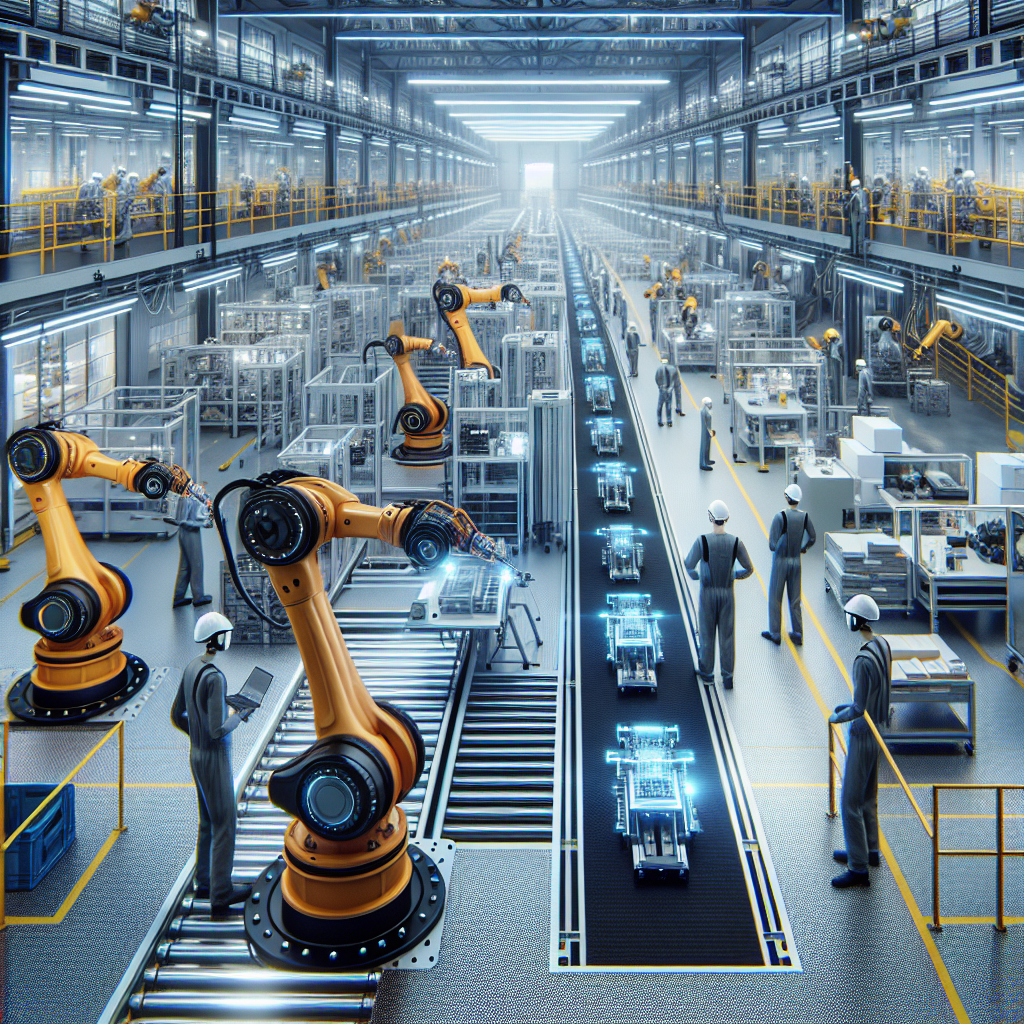AI Assistants Join the Factory Floor
In recent years, the integration of artificial intelligence (AI) into various industries has transformed the way businesses operate. One of the most fascinating developments is the emergence of AI assistants on the factory floor. These intelligent systems are reshaping manufacturing processes, enhancing productivity, and providing a competitive edge. In this blog post, we will explore how AI assistants are revolutionizing the factory environment, the benefits they offer, and the future implications of their adoption.
The Rise of AI in Manufacturing
Manufacturing has always been at the forefront of technological innovation. From the introduction of the assembly line to the adoption of robotics, the industry is continually evolving. Today, AI is the next big leap forward. AI assistants are designed to work alongside human operators, improving efficiency and accuracy while taking on repetitive tasks.
What Are AI Assistants?
AI assistants are software applications powered by advanced algorithms and machine learning capabilities. They are designed to perform various tasks that require data processing, analysis, and decision-making. In a factory setting, AI assistants can monitor machinery, analyze production data, predict maintenance needs, and optimize workflows.
These tools can be equipped with features such as natural language processing, enabling operators to interact with them through voice commands or chat interfaces. This effortless interaction allows for quick access to crucial information, streamlining operations on the factory floor.
Enhancing Productivity
One of the most significant advantages of AI assistants in manufacturing is their ability to enhance productivity. By automating repetitive tasks, AI can free up human workers to focus on more complex and strategic activities. This shift not only leads to higher efficiency but also improves job satisfaction among employees.
Automation of Repetitive Tasks
Daily operations in a factory often involve monotonous tasks, such as data entry and inventory management. AI assistants can handle these responsibilities, ensuring accuracy and consistency while allowing human workers to engage in more meaningful work. For example, AI can automate quality control checks, tracking defects in real-time and reducing waste.
Real-Time Data Analysis
AI assistants can analyze vast amounts of production data in real time, providing valuable insights that help optimize manufacturing processes. By identifying trends, patterns, and anomalies, these systems enable managers to make informed decisions quickly. This proactive approach to data analysis can lead to significant improvements in efficiency and cost-effectiveness.
Improving Safety and Reducing Downtime
Safety is a paramount concern in manufacturing environments. AI assistants can play a crucial role in enhancing safety measures and reducing downtime caused by equipment failures.
Predictive Maintenance
Predictive maintenance is a game-changer in the manufacturing industry. AI assistants can analyze data from machinery and equipment to predict when maintenance is required. By monitoring certain metrics, such as vibration patterns and temperature fluctuations, these systems can alert operators to potential issues before they escalate into costly downtime.
This shift from reactive to proactive maintenance not only saves money but also helps maintain a safe working environment. Fewer unexpected breakdowns mean less time spent in hazardous situations, contributing to overall employee safety.
Enhanced Training and Support
AI assistants can also assist in employee training and support. New workers can receive guidance and information instantaneously, minimizing the learning curve. By accessing the AI assistant through voice commands or screens, employees can quickly query procedures, troubleshoot issues, and receive real-time assistance as they navigate their tasks.
Challenges and Considerations
While the benefits of AI assistants in manufacturing are substantial, their implementation is not without challenges. Organizations must carefully consider several factors to ensure successful integration.
Workforce Integration
Integrating AI assistants into the factory environment requires a thoughtful approach to workforce dynamics. Employees may initially feel threatened by the prospect of AI taking over tasks they currently perform. To mitigate these concerns, companies must communicate the benefits of AI and emphasize its role in enhancing jobs rather than replacing them.
Training programs should be established to ensure employees are comfortable working alongside AI assistants. This collaborative environment can foster a culture of innovation, where employees feel empowered to leverage technology to improve their roles.
Data Security and Privacy
As AI systems rely heavily on data, organizations must prioritize data security and privacy. Implementing robust security measures is essential to protect sensitive information from cyber threats. Additionally, companies must comply with data protection regulations and ensure that data collection practices are ethical and transparent.
The Future of AI Assistants in Manufacturing
The ongoing evolution of AI technology suggests that the integration of AI assistants into manufacturing will only become more prevalent. As these systems continue to improve, we can expect to see enhanced capabilities and new applications that further transform the industry.
Increased Customization and Flexibility
Future AI assistants will likely feature increased customization options, allowing manufacturers to tailor them to their specific needs. This could involve integrating AI with existing systems and machinery, enabling seamless communication and collaboration between humans and machines.
Additionally, as the market demands greater flexibility and rapid production changes, AI assistants will be essential in helping manufacturers adapt to shifting requirements. They will enable quick adjustments to production schedules while maintaining quality and efficiency.
Collaborative Robots (Cobots)
The rise of collaborative robots, or cobots, is another exciting development in the manufacturing landscape. These robots work alongside human operators, guided and supported by AI assistants. Cobots can handle tasks that are physically demanding, allowing human workers to focus on more complex cognitive tasks. The collaboration between AI assistants and cobots will redefine the manufacturing process, fostering a synergistic relationship that enhances productivity and safety.
Conclusion
AI assistants are transforming the factory floor by enhancing productivity, improving safety, and optimizing processes. As the manufacturing industry continues to embrace technological advancements, AI will play an increasingly vital role in shaping its future. By understanding the benefits and challenges associated with AI integration, organizations can harness the power of these intelligent systems to drive innovation and maintain a competitive edge.
In conclusion, the collaboration between human workers and AI assistants is not just a trend; it’s a fundamental shift in how we approach manufacturing. As factories evolve in the age of automation, embracing AI will be crucial for those looking to thrive in an ever-changing landscape.



